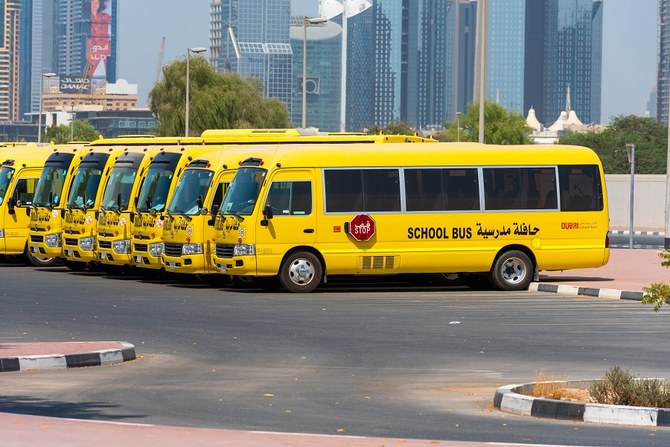Hussain Bin Ibrahim Al Hammadi, Minister of Education, said the UAE academic year will start as per the calendar already approved by the Ministerial Development Council on August 30th, while the administrative and teaching staff will begin working on August 23rd.

“Education remains a top priority and national objective, and therefore our leadership has directed to apply the distance education system under the current circumstances so that our students won’t lose track and miss one single day from their academic year,” said the minister in statements today.
He attributed the sustainability of the UAE education system and the success of the remote learning process to the forward-thinking policy of the UAE leaders and the commitment of students and their parents.
Since the outbreak of the Covid-19, the centre has taken precautionary measures at the highest levels, he stated, noting that the centre disinfected 632 buses and placed 20,000 awareness posters on the chairs of public buses, urging the public to abide by physical distancing rules.
In Abu Dhabi, all the 7,625 school buses in the emirate have been completely disinfected and are ready for use when students return to schools, said Ateeq Mohammed Al Mazrouei, Director of Operations Department, Public Transport Sector of the Integrated Transport Centre in Abu Dhabi.
Meanwhile, Education Business Group, a network of private school operators, has sought immediate support from the government to overcome the operational challenges faced by private schools in the UAE and to direct the opening of schools for the new term in September.
At a virtual press briefing hosted by Education Business Group, which represents over 100 private school operators in Dubai, members underlined the adverse impact of the COVID-19 pandemic on their operations, but also reiterated their commitment to providing quality education to all children in a safe and healthy environment.
They said it was important to welcome students back to schools in September for their all-round well-being and development.
The group members have communicated formally to the Ministry of Economy, Ministry of Education, Dubai Chamber of Commerce & Industry and different regulatory authorities across the United Arab Emirates, sharing their feedback on the current situation and offering suggestions on the support required to ensure sustainable operations.
The members said declining revenues could affect the ability of private school operators to meet their responsibilities including staff payments, which if impacted adversely, can lead to learning loss.
The private education sector has revenues over Dhs8.5 billion in Dubai and has also played a key role in positioning the city as a global hub of the knowledge economy, attracting talent, and adding to the emirate’s reputation as a business and lifestyle destination. The Private K-12 education sector in Dubai employs 20,000 teachers who provide quality education to over 2,90,000 students.




![The Top & Most Popular Seafood Bucket Restaurants in Dubai for you [Never Miss]](https://uae24x7.com/wp-content/uploads/2020/09/8-seafood-in-a-bucket-scaled-e1600739237403.jpg)
![Procedures for Renewing the Driving License in Abu Dhabi [3 Simple Steps]](https://uae24x7.com/wp-content/uploads/2020/07/Capture-9-e1595666454466.jpg)





